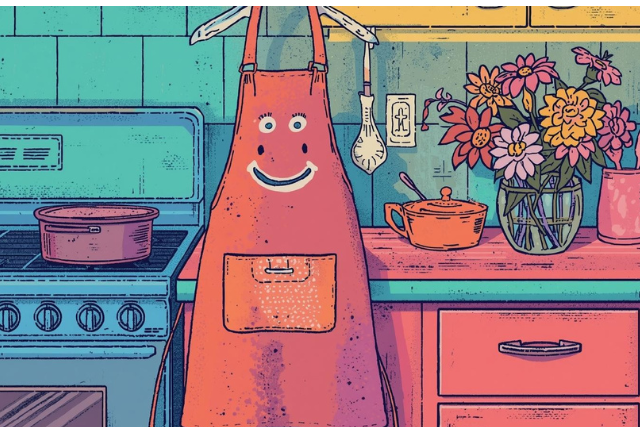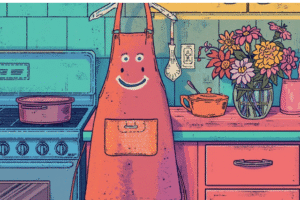Parent-child relationships are often portrayed as inherently loving, but this isn’t true for many adult children. Instead, they endure ongoing emotional harm or mistreatment from their parents that undermines their self-worth. If you find yourself in this situation, you might question why you remain in contact with parents who consistently belittle you, manipulate you, ignore your needs and feelings, or twist events so everything’s your fault.
The desire for parental love and acceptance can be powerful and confusing, leading you to stay connected even when you recognize the relationship’s negative impact. This post explores some of the reasons why adult children maintain relationships with emotionally abusive parents. Consider which of them reflects your experiences.
1. Craving your parents’ love and approval
Feeling confused about wanting love from someone who didn’t provide safety is understandable. This isn’t something you consciously choose, but a basic survival instinct. From infancy, humans are hardwired to connect with their caregivers. This connection is biological; your survival depends on it. Even if your parents didn’t provide consistent safety or nurturing, the need for their acceptance and approval remains strong. It can make you long for their love and validation and seek connection despite the pain it causes.
2. Hoping that they’ll change
Many of us cling to the belief that our parents will change. We want to believe that they didn’t intend to harm us, or that they regret the harm they caused. You might hold onto hope that you’ll finally get that long-awaited “I’m proud of you” or that they’ll stop drinking or offer a heartfelt apology.
The hope that your parents might change or improve their behavior over time can be a powerful motivator to stay connected. Sometimes, it’s even harder to let go of this hope if your parents occasionally demonstrate kindness, understanding, or interest in you. Unfortunately, hoping or expecting your parents to change can keep you trapped in a cycle of disappointment.
3. Social pressures to maintain a relationship with your family
Feelings of guilt and a sense of duty can also contribute to maintaining dysfunctional family relationships. You feel obligated to care for your parents, especially if you believe you owe them for raising you. Societal and cultural expectations further reinforce this sense of duty, often placing immense pressure on children to maintain family connections regardless of the circumstances. Distancing yourself can feel like abandoning them, adding to the heavy burden of guilt you’re feeling.
4. Fear of losing other relationships
The potential loss of other family relationships is another reason for staying connected to emotionally abusive parents. The prospect of being alone or losing the support of extended family and friends can lead individuals to tolerate abusive relationships rather than face the uncertainty and loneliness of estrangement.
5. Practical limits
Practical considerations such as financial dependence or shared responsibilities can also complicate the decision to distance yourself from abusive parents. If you rely on your parents for financial support, housing, or childcare, you may find it practically impossible to sever ties without significant disruption to your life.
In these situations, you may find that you need to work on minimizing contact and establishing boundaries while you take steps to increase your independence.
6. Denial, manipulation, and normalization of abuse
When you grow up in an abusive environment, abusive behaviors become normalized to the extent that you may not fully recognize them as abuse. This normalization can make it difficult to see the necessity of distancing yourself from the relationship.
Emotional Abuse Essential Reads
In addition, many abusive parents are expert manipulators. They often downplay their behavior, gaslight, or shift the blame onto their children, creating confusion and self-doubt, which makes it difficult for adult children to recognize the extent of the abuse.
Learning about healthy relationship dynamics and the signs of emotional abuse can help individuals recognize the detrimental effects of their parents’ behavior. Distance from the relationship can also provide clarity and help you recognize abuse for what it is.
7. Love, pity, and dependency
Even though you’ve been mistreated, you might still genuinely love your parents and not want to hurt them by setting boundaries or cutting ties. This can make it incredibly hard to create distance if you believe love means tolerating their behavior. You might also feel sorry for your parents, understanding that their behavior may stem from unresolved traumas.
Years of navigating an abusive dynamic can also create a deep emotional reliance, making it hard for you to imagine life without your parents, even if you know the relationship isn’t good for you.
Protecting Yourself From Emotionally Abusive Parents
While the desire to maintain family connections is understandable, it’s crucial to prioritize one’s own well-being. When dealing with abusive parents, establishing healthy boundaries isn’t selfish; it’s a vital form of self-care and a necessary step towards fostering more respectful and balanced interactions, if that’s possible.
Setting boundaries involves communicating your limits regarding their behavior and the consequences if those limits are crossed. This could look like limiting the topics you’re willing to discuss, the frequency of contact, or how they speak to you. For instance, you might decide you will end a phone call if they start criticizing you, or that you will only visit for a certain amount of time.
To start, ask yourself: Which of my parents’ behaviors make me feel anxious, drained, angry, or hurt? What kind of interactions leave me feeling worse about myself? Once you identify these patterns, you can start to define what you need to feel safer and more respected in the relationship. This might involve saying no more often, limiting personal disclosures, or creating physical distance. Remember, you have the right to safeguard your emotional and Mental health, and when dealing with abusive people, sometimes the only way to protect yourself is to reduce contact or end the relationship entirely.
The decision to maintain or end a relationship with emotionally abusive parents is deeply personal and complex. Throughout the process, it’s essential to treat yourself with compassion; facing the pain that you’ve endured from abusive parents is challenging and courageous work that requires you to take care of yourself in new and important ways.
©Sharon Martin. Adapted from an article on the author’s website.













